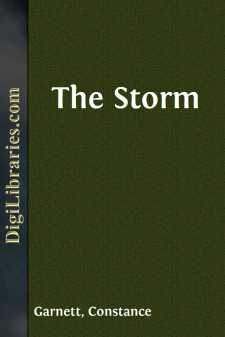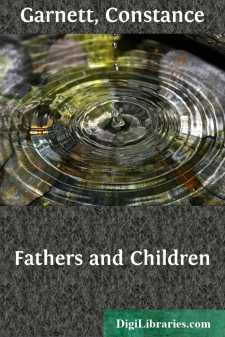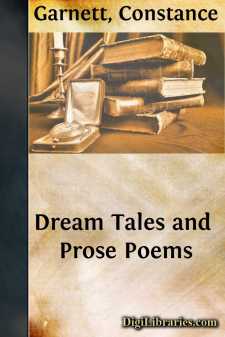Categories
- Antiques & Collectibles 13
- Architecture 36
- Art 48
- Bibles 22
- Biography & Autobiography 813
- Body, Mind & Spirit 142
- Business & Economics 28
- Children's Books 17
- Children's Fiction 14
- Computers 4
- Cooking 94
- Crafts & Hobbies 4
- Drama 346
- Education 46
- Family & Relationships 57
- Fiction 11829
- Games 19
- Gardening 17
- Health & Fitness 34
- History 1377
- House & Home 1
- Humor 147
- Juvenile Fiction 1873
- Juvenile Nonfiction 202
- Language Arts & Disciplines 88
- Law 16
- Literary Collections 686
- Literary Criticism 179
- Mathematics 13
- Medical 41
- Music 40
- Nature 179
- Non-Classifiable 1768
- Performing Arts 7
- Periodicals 1453
- Philosophy 64
- Photography 2
- Poetry 896
- Political Science 203
- Psychology 42
- Reference 154
- Religion 513
- Science 126
- Self-Help 84
- Social Science 81
- Sports & Recreation 34
- Study Aids 3
- Technology & Engineering 59
- Transportation 23
- Travel 463
- True Crime 29
Constance Garnett
Constance Garnett was a prominent English translator known for her translations of Russian literature into English. She translated works of major Russian authors such as Tolstoy, Dostoevsky, Turgenev, and Chekhov, significantly contributing to their accessibility in the English-speaking world. Garnett's translations, completed in the late 19th and early 20th centuries, played a crucial role in shaping Western perceptions of Russian literature.
Author's Books:
Sort by:
THE TORRENTS OF SPRING 'Years of gladness, Days of joy, Like the torrents of spring They hurried away.' —From an Old Ballad. … At two o'clock in the night he had gone back to his study. He had dismissed the servant after the candles were lighted, and throwing himself into a low chair by the hearth, he hid his face in both hands. Never had he felt such weariness...
more...
INTRODUCTION Up to the years of the Crimean War Russia was always a strange, uncouth riddle to the European consciousness. It would be an interesting study to trace back through the last three centuries the evidence of the historical documents that our forefathers have left us when they were brought face to face, through missions, embassies, travel, and commerce, with the fantastic life, as it seemed...
more...
XXVI The next day exactly at eleven o'clock I was at the place. Fine hail was falling from the low-hanging sky, there was a slight frost, a thaw was close at hand, but there were cutting, disagreeable gusts of wind flitting across in the air.... It was the most thoroughly Lenten, cold-catching weather. I found Mr. Ratsch on the steps of his house. In a black frock-coat adorned with crape, with no...
more...
INTRODUCTION I Turgenev is an author who no longer belongs to Russia only. During the last fifteen years of his life he won for himself the reading public, first in France, then in Germany and America, and finally in England. In his funeral oration the spokesman of the most artistic and critical of European nations, Ernest Renan, hailed him as one of the greatest writers of our times: 'The Master,...
more...
INTRODUCTION This exquisite novel, first published in 1859, like so many great works of art, holds depths of meaning which at first sight lie veiled under the simplicity and harmony of the technique. To the English reader On the Eve is a charmingly drawn picture of a quiet Russian household, with a delicate analysis of a young girl's soul; but to Russians it is also a deep and penetrating...
more...
A STUDY I We all settled down in a circle and our good friend AlexandrVassilyevitch Ridel (his surname was German but he was Russian to themarrow of his bones) began as follows: I am going to tell you a story, friends, of something that happened tome in the 'thirties ... forty years ago as you see. I will bebrief--and don't you interrupt me. I was living at the time in Petersburg and had only...
more...
BIOGRAPHICAL NOTE Ivan Sergyevitch Turgenev came of an old stock of the Russian nobility. He was born in Orel, in the province of Orel, which lies more than a hundred miles south of Moscow, on October 28, 1818. His education was begun by tutors at home in the great family mansion in the town of Spask, and he studied later at the universities of Moscow, St. Petersburg, and Berlin. The influence of the...
more...
CLARA MILITCH I In the spring of 1878 there was living in Moscow, in a small wooden house in Shabolovka, a young man of five-and-twenty, called Yakov Aratov. With him lived his father's sister, an elderly maiden lady, over fifty, Platonida Ivanovna. She took charge of his house, and looked after his household expenditure, a task for which Aratov was utterly unfit. Other relations he had none. A...
more...
Chapter 1 Happy families are all alike; every unhappy family is unhappy in its own way. Everything was in confusion in the Oblonskys' house. The wife had discovered that the husband was carrying on an intrigue with a French girl, who had been a governess in their family, and she had announced to her husband that she could not go on living in the same house with him. This position of affairs had...
more...
Chapter I A bright spring day was fading into evening. High overhead in the clear heavens small rosy clouds seemed hardly to move across the sky but to be sinking into its depths of blue. In a handsome house in one of the outlying streets of the government town of O—— (it was in the year 1842) two women were sitting at an open window; one was about fifty, the other an old lady of seventy. The name...
more...











